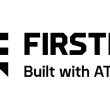Bureaucracy gone bad
Recently, a number of small specialized mobile radio (SMR) and paging licensees were shocked to find that the FCC was proposing to fine them $20,000 for failing to timely file their 2008 certifications that the licensees were in compliance with the commission’s Customer Proprietary Network Information (CPNI) rules. In sum, these rules are designed to ensure confidentiality of customer’s company and usage information.
In 2007, the FCC decided for the first time that small carriers should be covered by these rules and be required to file statements demonstrating their compliance. However, the commission made no attempt at that time to reach out to such carriers and inform them of the new requirement, instead relying on general FCC Public Notices. Unfortunately, small SMR and paging companies don’t have large staffs dedicated to reading every FCC Public Notice, nor are they as “plugged into” the commission as compared with large carriers. The FCC did reach out to these licensees in 2008, but only after the small carriers missed the filing deadline. And now the FCC wants to fine these licensees, not because their substantive CPNI compliance programs are insufficient, but because they filed an administrative certification several months late.
It is unclear why the FCC could not have performed the same outreach before the 2008 deadline. The CPNI certification filing is very simple, and the FCC had no problem finding these carriers afterwards. Why was it not more proactive, especially considering that this was a first-time requirement? In addition, it seems that a $20,000 fine is wildly disproportionate to the harm here, which is simply a late filing, not a non-compliant program.
What IS clear is that the FCC has a confusing set of requirements for small SMR and paging carriers, with a variety of regulatory classifications. Some classifications have to do with whether you are interconnected with the PSTN, which could be negated if your service area covers multiple states, or if you acquired your licenses at auction.
It impossible to make blanket statements as to small carrier responsibilities, and a review of each situation is too lengthy even for the generous amount of space which this magazine grants me every month, but suffice to say that if you are a paging licensee, you must have a CPNI compliance program and must file an annual certification. In addition, if you are an interconnected SMR, or a geographic licensee, you also must file. Please consult your advisor for information specific to your situation.
Other carrier requirements are calculated on the FCC Form 499. This form is used to calculate a carrier’s federal obligations regarding the Universal Service Fund (USF), Telecommunications Relay Service (TRS), Local Number Portability (LPN) and the North American Numbering Plan Administration (NANPA). Form 499A must be filed with the FCC annually, and licensees also must prepare a quarterly Form 499Q, which is filed unless the carrier is small enough to be exempt.
When combined with the FCC’s annual regulatory fee, and the rumors that the Obama administration wants to impose more fees for spectrum use, it is clear that small carriers are being pounded by a government that doesn’t seem to care about small business. It is hoped that the incoming FCC chairman will have a different view.
Alan Tilles is counsel to numerous entities in the private radio and Internet industries. He is a partner in the law firm of Shulman Rogers Gandal Pordy & Ecker and can be reached at [email protected].

















